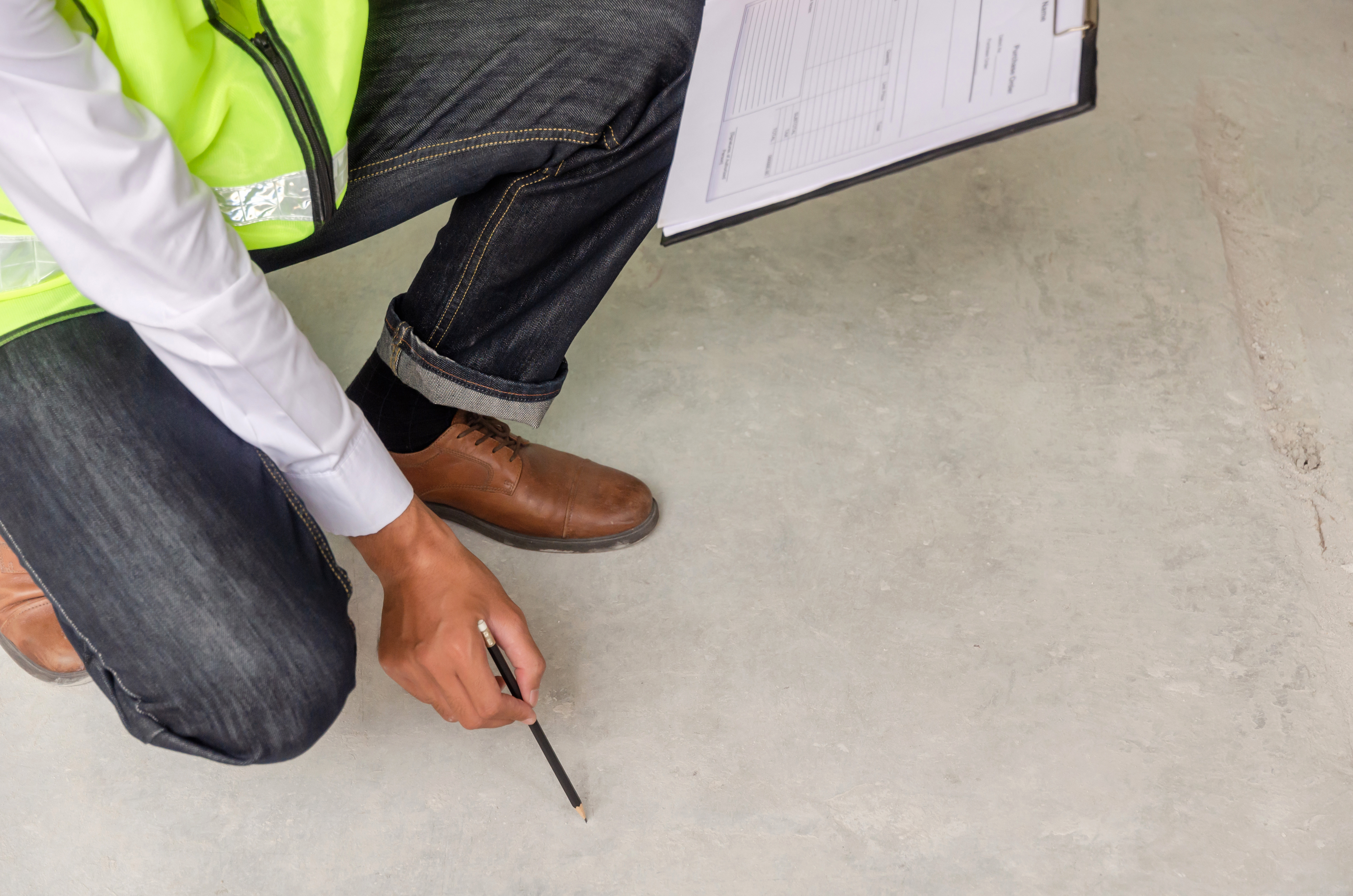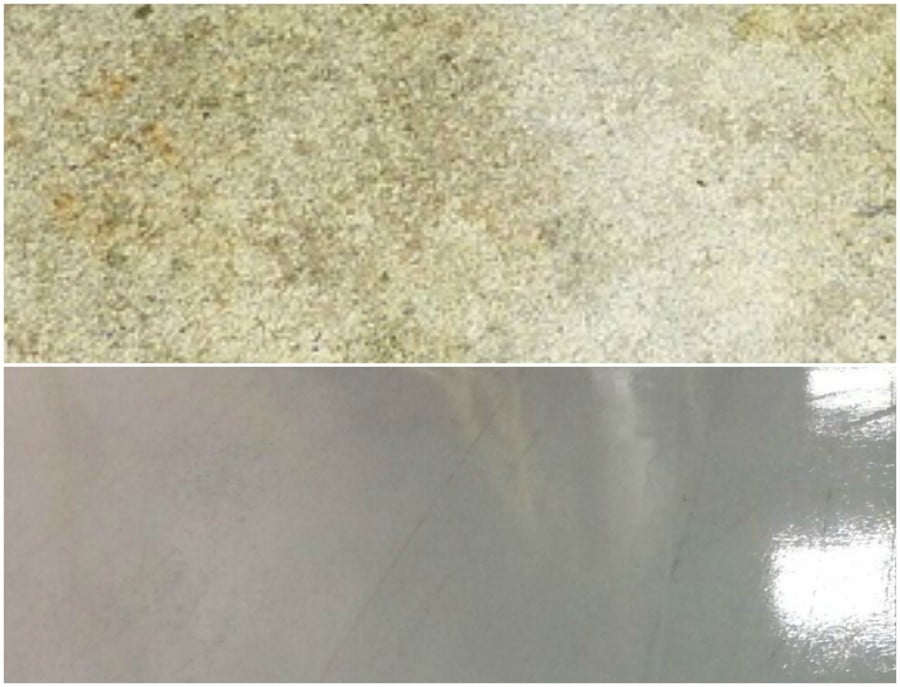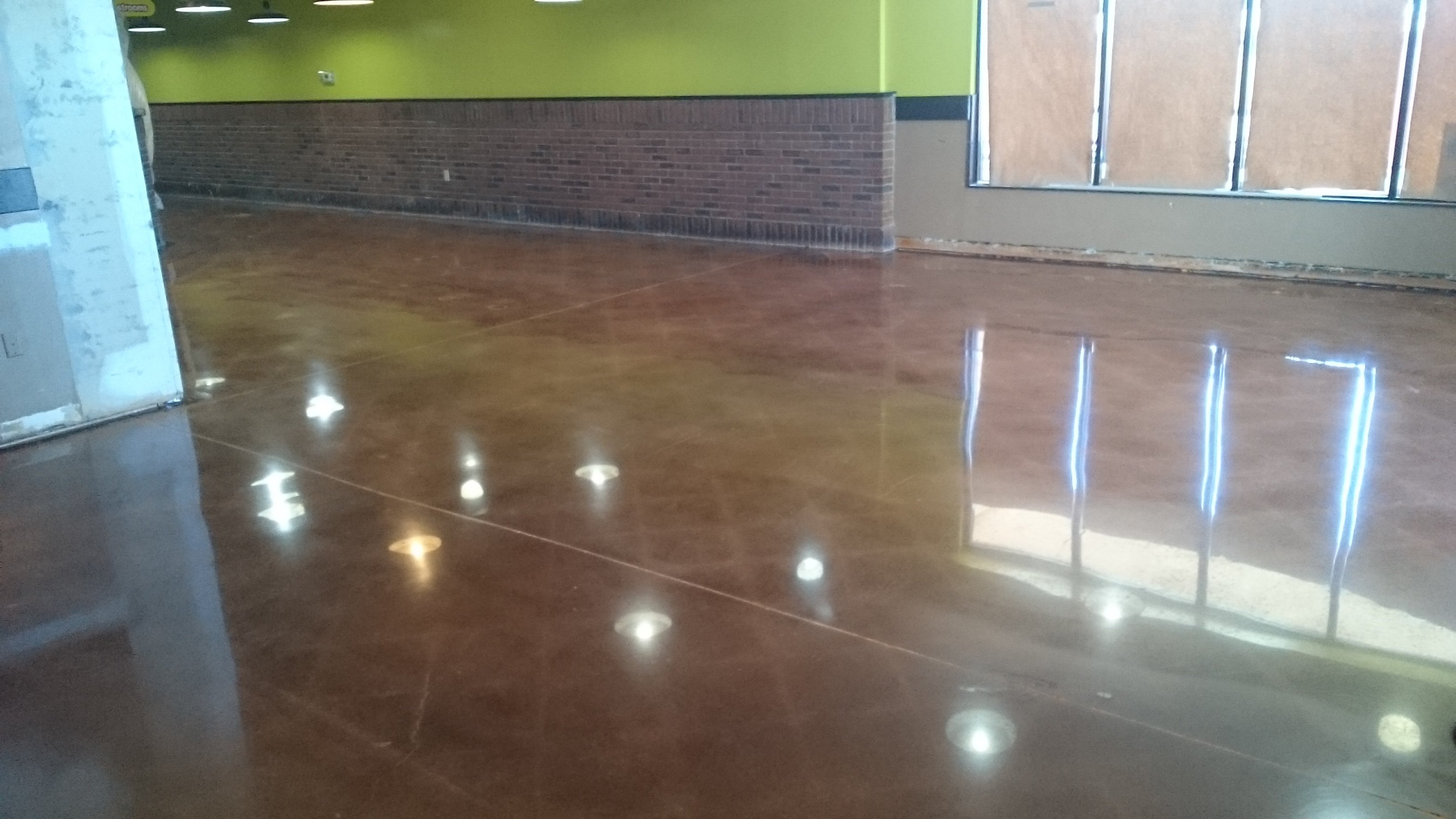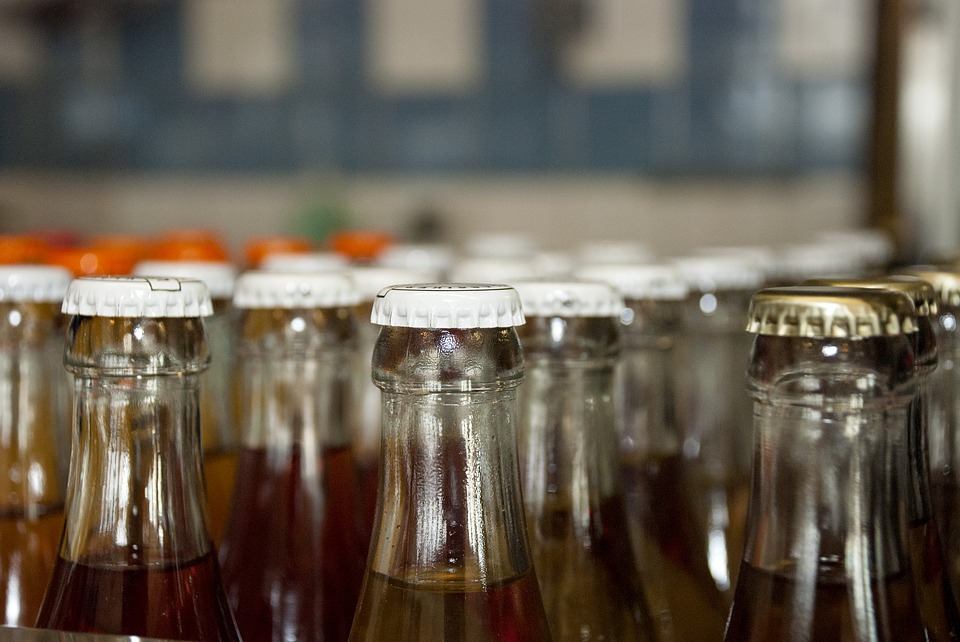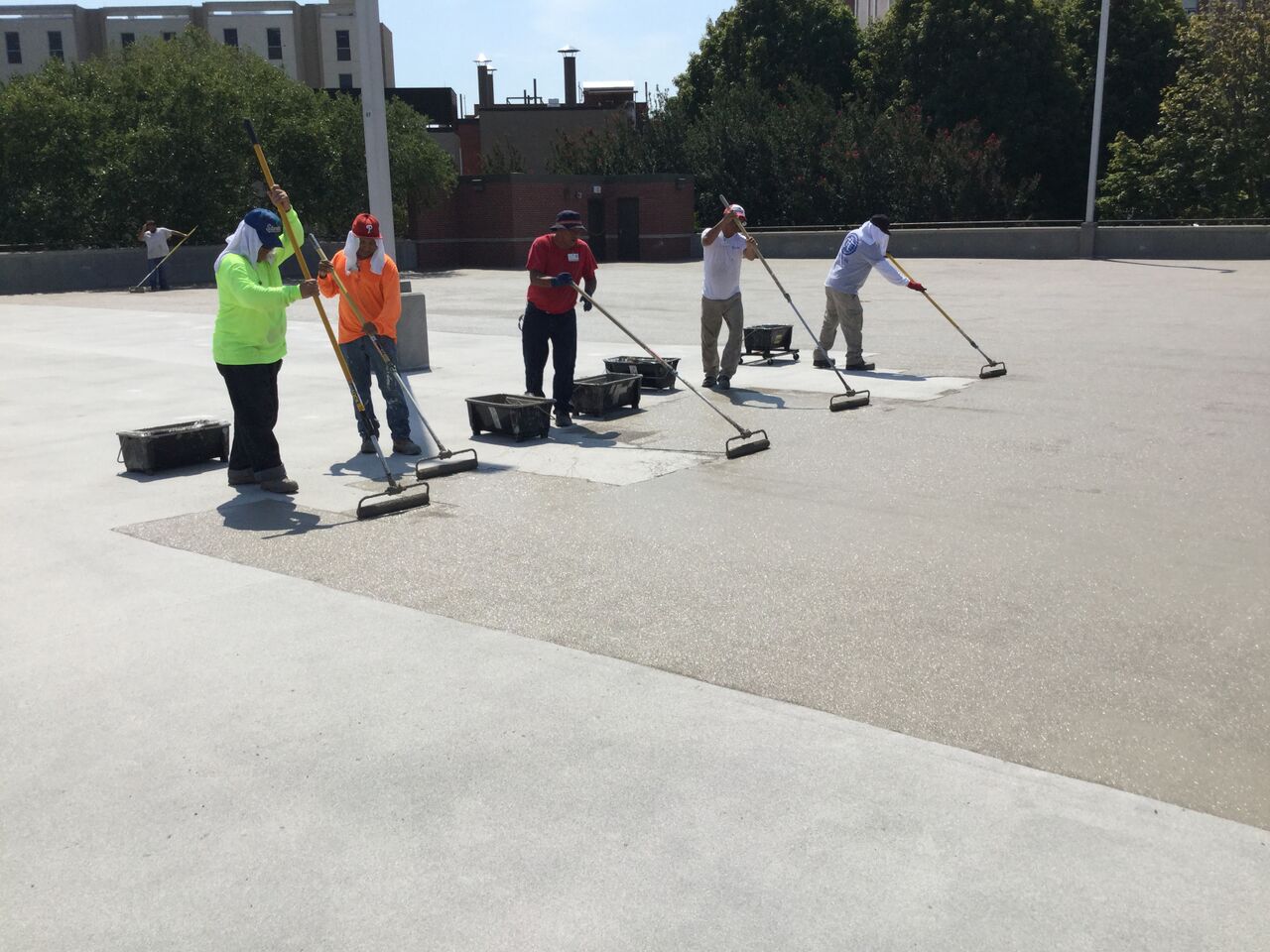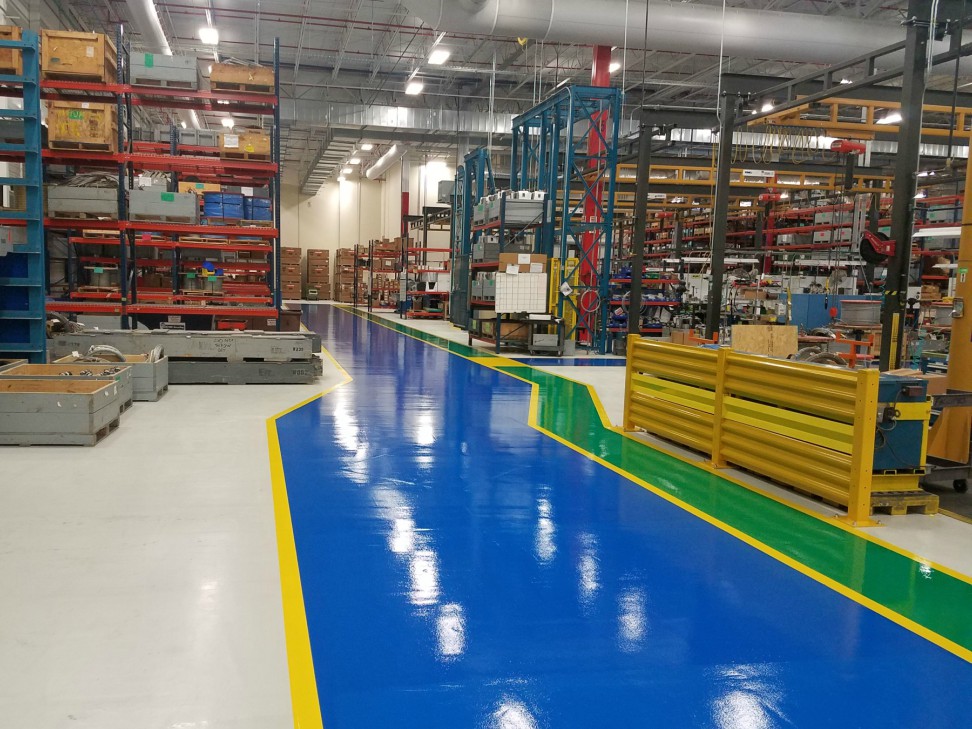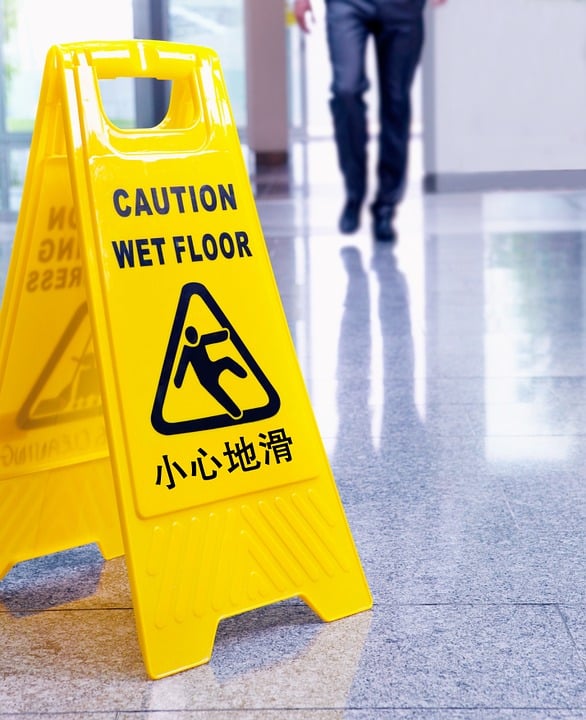Equipment performance, food storage protocols, sanitation procedures, temperature control, and employee hygiene — these are just a few of the many elements under the microscope during a food safety audit. But have you taken a moment to consider what’s right beneath your feet?
Jeremy Gillespie
Recent Posts
How Can Floor Coatings Help You Pass Your Next Food Safety Audit?
What if you adored your home's concrete floors as much as you do your hardwoods? With a little attention, your concrete floors could look just as good!
The secret to nicer concrete floors is polishing and staining. It's not something many homeowners consider—or even know about—but it's a worthwhile investment for not only aesthetic appeal, but also for longevity.
Keep reading to learn more!
Concrete is a remarkably durable building material, but it’s not damage-proof. Not only is it subject to cracking as it cures, untreated concrete can be affected by vehicle traffic, corrosive chemicals, and freezing water.
If you have a concrete surface, whether exterior or interior, there’s a good chance you’ll need to get it treated with some sort of sealant or coating. But which is best for your situation—a concrete sealer, or something stronger such as an epoxy or urethane?
The answer depends mostly on where the concrete is located and what it’s primarily used for.
Topics: Urethane Coatings, Epoxy Coatings
If you’re looking to outfit a new commercial space—or upgrade an old one—your choice of flooring will be a major part of your initial expense.
But the initial cost isn’t the only thing to consider: if you choose a flooring type that’s not durable enough to stand up to customer traffic, repair and replacements will become an operational cost you’ll have to factor in every few years.
Carpet, hardwood, vinyl, and tile may be fine for department stores or areas that don’t have constant foot traffic. However, these flooring types are all susceptible to high levels of wear and damage in high-traffic areas. If you’re expecting a high volume of shoppers (or are directing all traffic along just a few major thoroughfares), you’ll probably want something that will stand up better.
If you’re looking for the most durable commercial flooring available (and would like to save money at the same time), consider starting with your concrete slab and applying one of these attractive finishes:
Topics: Urethane Coatings, Epoxy Coatings, Concrete Polishing
Are you looking to build a new beverage processing plant, or need help to remediate flooring issues in an existing building?
Whether you’re running a small craft brewery, a coffee roasting operation, or a large-scale production plant for bottled drinks, the process you use likely has many stages. It’s possible you’ll need more than a one-size-fits-all flooring solution.
Here’s a quick overview of different types of flooring to consider for different parts of your facility.
Topics: USDA Approved Flooring
Weatherproof Coating Options for Outdoor Concrete Surfaces
Without a doubt, concrete is able to withstand the elements on its own—after all, it’s been used to build skyscrapers, interstate bridges, and even ancient Roman temples that still stand today! However, outdoor concrete surfaces—especially those used for pedestrian or vehicle traffic—can be stained or damaged by everyday use. In areas that regularly experience cold and wet winters, the freeze-thaw cycle can widen cracks and create areas of spalling.
If your facility has an outdoor concrete surface that you’d like to keep attractive and pedestrian-safe, you’ll find several options for protective coatings. Below we’ve overviewed several of the most common options, ranked from the least to most protection.
Topics: Industrial Floor Coatings
Whether your laboratory is used to conduct biomedical research, test product safety, or pioneer new technologies, you want to keep everyone connected with your lab safe. One often-overlooked aspect of laboratory safety is the floor itself.
Not only should your floor help prevent accidents such as trips and falls, it should also be easy to keep sanitary.
While the exact flooring solution for your facility will depend on your field, there are several common factors to consider when choosing flooring for your laboratory:
Topics: Work Safety, Urethane Coatings, Epoxy Coatings
The Importance of Your Floor’s Light Reflectance Value (LRV)
Looking to save energy costs for your manufacturing plant, warehouse, or other industrial facility? In addition to investing in energy-efficient equipment and evaluating when lights and equipment safely may be shut off, you may also want to consider the finish on your floor.
A high-quality floor coating will not only protect your floor from damage and staining, but it can also help reduce the energy you need to light your facility—that is, if it has a high Light Reflectance Value, or LRV.
The term LRV is commonly used to refer to wall paint, but your facility’s floors can also make an impact on the brightness of your interior space.
Here’s how your floor’s LRV can maximize the effectiveness of your facility’s lighting.
If your facility deals with sensitive electronic equipment—either manufactured circuit boards or other products, or sensitive computers that store important data—the last thing you want is a stray electrical charge to cause permanent damage. Likewise, if you work with flammable materials, a single spark can put your employees at risk of danger.
This is where an electrostatic dissipative (ESD) floor coating can save the day. Here’s a basic overview of how ESD floor coatings work.
Why static charges build
We’re all familiar with static shocks in every day life. Whether we’re walking across a carpet in thick socks or just feeling the side effect of dry winter weather, we may even be able to feel the charge building up before releasing in a sudden, stinging shock.
When two surfaces are in contact—in this case, your feet and the floor, electrons may pass from one to another. When they separate—that is, when you step away—the electron imbalance remains, and your body becomes slightly negatively charged. This charge builds up with each subsequent step until nature eventually finds a way to equalize it—usually via a shock when you touch another item, such as a doorknob, that’s positively charged.
How Flooring Can Prevent Industrial Workplace Accidents
If you manage a manufacturing plant or warehouse, you know that employee accidents can cost your company dearly—both in terms of monetary loss and the lost time and opportunity for your workers.
According to the US Department of Labor, here’s what worker compensation costs look like for 2017:
- Georgia: more than 3,500 workers injured at a cost of more than $275,000,000
- North Carolina: more than 1,200 workers injured at a cost of about $81,000,000
- South Carolina: more than 7,000 workers injured at a cost of about $800,000,000
- Tennessee: more than 17,000 workers injured at a cost of more than $2,400,000,000.
Unfortunately, there are aspects of the industrial workplace that bring with them inherent risks—for example, powerful manufacturing equipment, the necessity for repetitive tasks, and human workers who are prone to error.
However, other workplace accidents and injuries are preventable.
Topics: Work Safety

